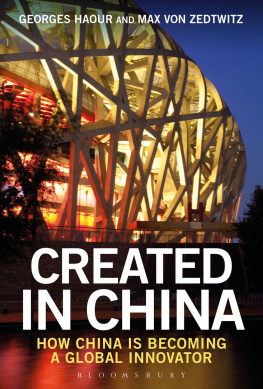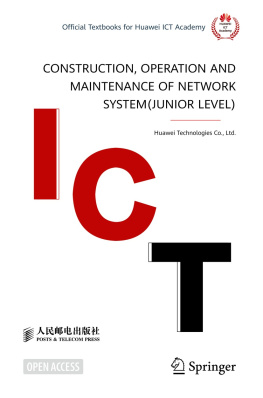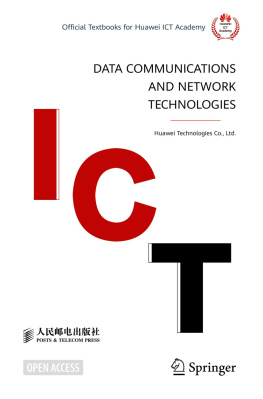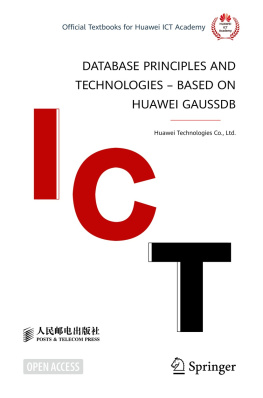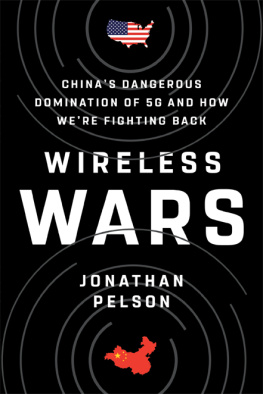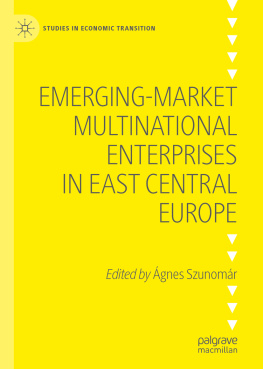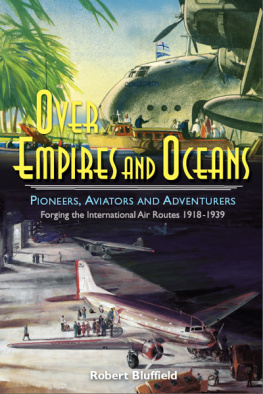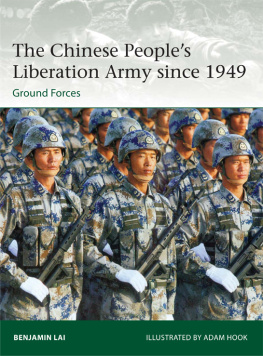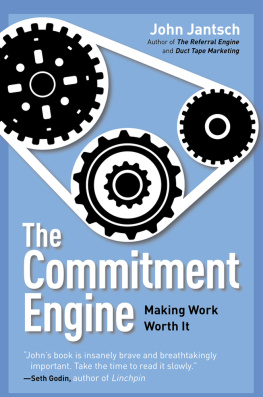Contents
Flawed Heroes Are Still Heroes
Preface
By Tian Tao
And heroes are those who work hard, with unequivocal purpose.
In early 2016, an image of Olympic champion Florence Griffith Joyner (Flo-Jo) appeared in Huaweis Breakthrough advertising campaign, stirring up quite the controversy both inside and outside the company. In 1988, Flo-Jo had set new world records for both the 100 m and 200 m races, shortly after she was accused of using performance-enhancing drugs. She retired that same year, and regrettably died, but this added further fuel to the controversy. Although some have defended her by citing the results of her autopsy which came up clean its natural to question why a global information and communications technology company like Huawei chose Flo-Jo for its ad campaign.
Looking at the image and seeing the extreme confidence with which she flew across the last 5 m metres of her 100 m sprint does not betray the pressure she must have felt when she set a new world record in 1988.
Controversial heroes are still heroes
And heroes are those who work hard, with unequivocal purpose. As Huaweis CEO Ren Zhengfei often says, Whats the point in scrubbing a piece of coal? In other words, those who dont create value with their actions cannot claim to be dedicated no matter how hard they work.
Lu Xun, who is revered as one of the two doctors who changed China , famously wrote, The fighter for all his blemishes is a fighter, while the most whole and perfect flies are still only flies. Of course, what Huawei needs is fighters, their various flaws and weaknesses notwithstanding.
Take Apple founder Steve Jobs, for example. He had an erratic personality and was known for wild behaviour in his youth. Nevertheless, in spite of his flaws, this particular fighter ended up changing the course of history.
Huawei has 180,000 fighters, generals and commanders of different backgrounds, personalities and ethnicities. Every single one of them is a coin with two sides, but they are all accepted in the Huawei crucible, where they are tempered into something stronger.
There is no such thing as an immaculate environment, nor are there perfectly spotless people. According to Ren Zhengfei, Huawei uses its competency and qualification (C&Q) system to build effective, results-oriented business teams, not a saintly choir.
Huawei is a legion of intellectuals. Many entered the companys ranks as specialists, only to be transformed into passionate fighters who may be a little rough around the edges, but possess strength of will with an indomitable spirit, and a distinct set of strengths and weaknesses. Of these passionate and ambitious fighters, thousands have grown to become generals and commanders. Without a doubt, this is the product of Huaweis belief that leaders are born of battle; former troublemakers and instigators often emerge as heroes after getting their feet wet and making great contributions in their field.
Heroes at Huawei come in all shapes and sizes. Those who gave their all, excelling in the roles they were best suited to these are heroes in the annals of Huaweis history. Perhaps some of them were only heroes of the moment, acting in the heat of battle, never to shine again. And whats wrong with that? We cant let the contributions of heroes fade from our memory, nor deny heroes their due prestige.
Showing tolerance for idiosyncrasy and rewarding heroism are prerequisites for the ongoing expansion of any successful organization. If an organization starts examining its employees under the lens of a microscope, it will weed out all the eccentric or otherwise flawed geniuses. The responsibility of leaders in an organization is to build the track, define the rules and assign the right lanes to provide people like Flo-Jo with an unobstructed environment where they can throw caution to the wind and race forward, fighting for victory.
When employees become overly cautious, they start preening themselves instead of focusing on company goals and operations, and when theyre no longer fighting for success, the organizations glossy new surface will begin to eat away at its very essence.
The old saying, Victory has a thousand fathers, but defeat is an orphan, is not necessarily true. Those who succeed are naturally entitled to wealth, promotion and a sense of fulfilment that corresponds with their contributions. However, those who do not succeed and are seen as failures especially the fighters who have met defeat time and again in the course of hard work should also be recognized and treated with respect. Otherwise, without seeing value in our inevitable failures, who would be willing to go out, take risks and find the growth potential in unyielding environments? Ren Zhengfei gave the following response to one managers public moment of self-reflection: No one can always win, and there is no success without failure. Failure is the mother of success.
Failure is also the mother of innovation
So, what is innovation? Its the act of blazing a trail through unexplored and undeveloped territory. If a company does not tolerate or encourage failure, or reward those who have the courage to take risks but end up stumbling, how can it overtake or overthrow its competitors? How can it enter no mans land strategically? Ren Zhengfei talks about how Huawei must focus all its strength the so-called Van Fleet Load on strategic opportunities. He also notes that a considerable part of the load will be spent on valuable waste, meaning that exploration in uncharted territory doesnt come without a price.
Heroes emerged in droves during Huaweis first ten years of business, back when it didnt matter who a hero was or where they came from. As long as someone had the courage to try, the company would let them go out and challenge the impossible. Many employees became experts and presidents in their early 20s, developing rapidly through trial and error. The practice of continuously learning and self-correcting, and being undeterred by one mistake after another, has given rise to hordes of outstanding managers and world-class R&D experts whove paved the way for Huaweis success.
Bai Zhidong, the head of Huaweis Blue Team , once asked: Since when has Huawei stopped calling upon individual heroes to rise? And for the eccentric heroes out there, since when has Huawei taken the wind out of their sails and allowed them to be sidelined?
Today, Huawei has become a large global corporation with a relatively standard management system. After 20 years of whittling away at its feet to fit snugly in the shoes of western corporate process, Huawei has bid the chaos of its formative years goodbye. Management can never accomplish perfection by standing still keeping up with change will always be a battle to be waged. Admittedly, this is a great step forward for Huawei, and one of the fundamental reasons behind the companys successful expansion in the global market. However, Huawei must guard against trading one extreme for another. It needs to avoid overcompensating with new rules and setting restrictive boundaries for its heroes as it moves away from its formative years of rapid growth this would be the equivalent of weakening Superman with kryptonite. Any new rules or policies should not suppress the creativity, passion and willingness to forge ahead in individuals and teams alike, nor should they compromise the essence of the organizations culture: goal-oriented action and dedication.


